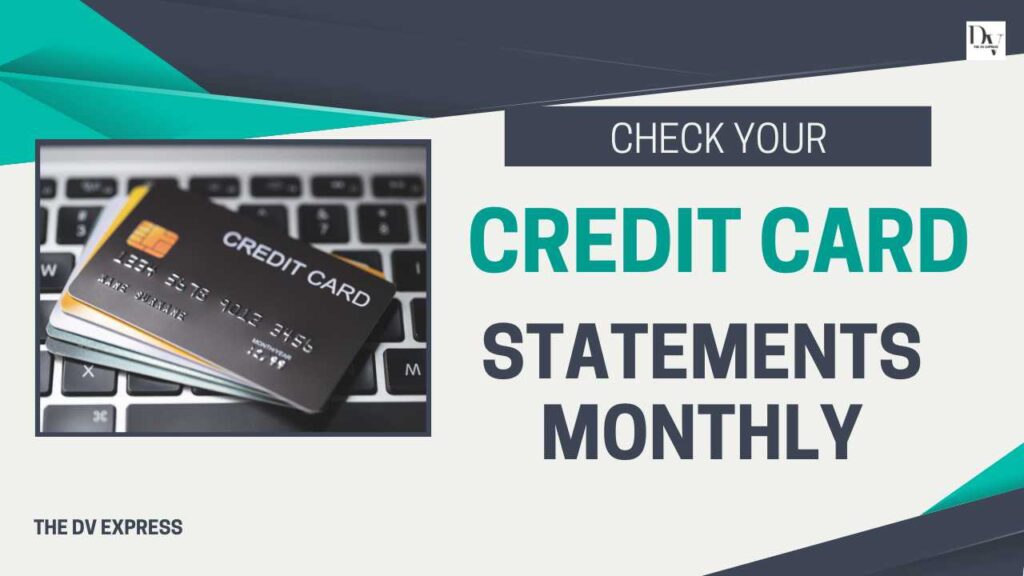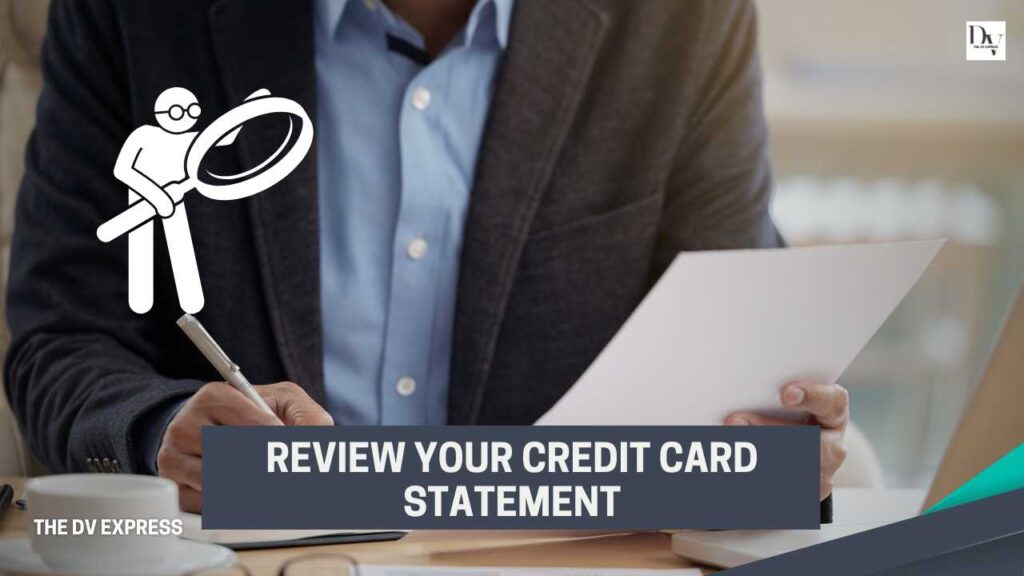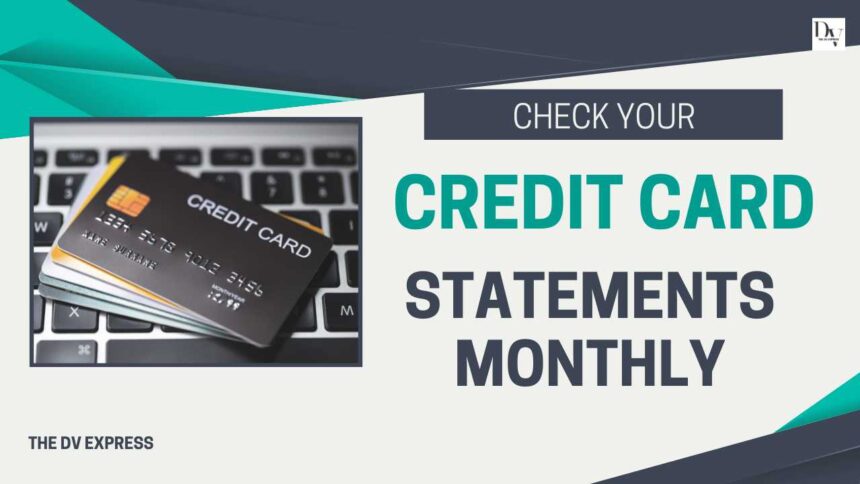In today’s digital economy, credit cards have become an essential part of everyday life. From online shopping and hotel bookings to fuel purchases and travel, they offer a convenient and cashless way to manage expenses. However, many people fail to realize that credit card statements often include hidden charges and fees that can silently eat away at your finances.

If you’re one of the millions of credit card users in India, you must develop the habit of checking your monthly credit card statement in detail. Failing to do so can cost you more than you expect — from unnecessary interest to avoidable fees. In this article, we’ll walk you through 10 key things you should always check when your credit card statement arrives.
1. Check the Minimum Payment Amount Carefully
Every credit card statement clearly shows the minimum payment due, which is typically a small percentage (around 5%) of your total outstanding balance. While paying only the minimum amount might help you avoid late fees, it doesn’t save you from interest charges.
Why it matters:
If you make only the minimum payment, the remaining balance accrues high-interest charges (up to 40% APR). Always aim to pay your full outstanding amount to avoid falling into a debt trap.
2. Watch Out for Late Payment Fees
Your statement will mention the due date for payment. If you miss this deadline, your bank can charge a late fee, which may range from ₹500 to ₹1,200 depending on your card type and outstanding balance.
Why it matters:
Late payments not only lead to additional fees but also negatively affect your CIBIL score. Consistent delays can even result in your credit limit being reduced or the card being blocked.
3. Check for Foreign Transaction Charges
If you’ve made any international purchases, whether online or abroad, make sure you review the foreign transaction fee (usually 2%–3.5%).
Why it matters:
These charges often go unnoticed, especially on international websites. Some cards offer zero foreign markup — if you don’t own one, consider getting it for international use.
4. Review Any Cash Advance Charges
Withdrawing cash using your credit card is not recommended, unless it’s an emergency. This is because banks levy cash advance fees (usually 2.5%–3% of the amount) plus interest from day one — with no grace period.
Why it matters:
Even if you didn’t make such a withdrawal, it’s essential to verify that no such charge has been incorrectly applied to your account.
5. Check for Overlimit Charges
Have you ever spent more than your credit card limit? If so, your statement may include an overlimit fee — typically a percentage of the exceeded amount.
Why it matters:
Going over your credit limit not only invites penalties but can also lower your credit utilization ratio, affecting your credit health.
6. Scrutinize the Interest Rate Applied
One of the most overlooked sections of a credit card statement is the interest calculation. If you’re carrying a balance, check the monthly interest rate and calculate if it’s being applied correctly.
Why it matters:
Some banks might apply a higher rate if payments were delayed, or if promotional rates have expired without your notice.
7. Verify Reward Points Earned
If your credit card offers reward points or cashback benefits, it’s important to verify whether they have been correctly credited.
Why it matters:
Sometimes, transactions don’t get recorded properly for rewards. In case of a dispute, it’s better to raise the issue promptly. Also, keep an eye on the validity period — many reward points expire after 2 or 3 years.
8. Look for Annual Charges
Most credit cards come with an annual or renewal fee, unless it’s waived under certain spending conditions.
Why it matters:
Some banks charge this fee in smaller parts, so it may be hidden in your statement. If you believe the charge is unjustified, call your bank to request a waiver, especially if you’re a loyal customer.
9. Review EMI Transactions and Their Charges
If you’ve converted any big-ticket purchases into EMIs, your credit card statement will show the monthly EMI amount, along with interest and processing fees.
Why it matters:
Some banks offer no-cost EMIs, while others sneak in interest under the guise of easy monthly payments. Always check the effective interest rate on your EMIs to avoid surprises.
10. Understand Offers and Discounts Clearly
Often, credit card statements highlight exclusive offers, discounts, and deals — for example, 10% off on Flipkart or extra cashback on fuel.
Why it matters:
While these offers seem attractive, many come with terms and conditions. Some might include minimum transaction amounts, specific merchant codes, or extra charges that reduce the actual benefit.

Why Reviewing Your Credit Card Statement is More Important Than You Think
Let’s face it — most people never fully read their credit card statement. Some pay blindly, while others focus only on the total due. But skipping the fine print could mean paying unnecessary charges month after month.
By routinely checking your credit card statement, you can:
- Catch unauthorized transactions
- Spot hidden or double charges
- Understand your spending pattern
- Track and use expiring reward points
- Ensure you’re getting promised benefits
What to Do If You Spot an Error
If you find an incorrect charge or suspicious transaction:
- Call customer care immediately and raise a dispute.
- Email your bank with transaction details and request a correction.
- If unresolved, escalate the issue to the banking ombudsman or RBI’s consumer redressal portal.
Pro Tips to Manage Your Credit Card Responsibly
- Set reminders for payment due dates.
- Always aim to pay your total outstanding amount.
- Avoid cash withdrawals and over-limit spending.
- Redeem reward points before they expire.
- Review your statement every month without fail.
Final Thoughts
Your credit card can be your best financial tool — or your worst liability. The difference lies in how responsibly you use it. Always remember that credit card companies thrive on people not reading the fine print. Don’t be one of them.
By checking these 10 important things in your credit card statement, you’ll not only avoid unnecessary costs but also improve your financial health and stay ahead of hidden traps.
